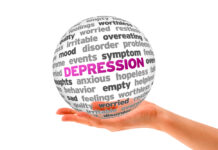On Psychology Today, sociologist and author Joseph E. Davis weighs the differing points of view on youth mental health—and considers the dilemma young people are in, given ramped-up cultural expectations and “the pathologizing wave” that uses the language of disorder and diagnosis to describe genuine emotional distress:
“In recent years, we have had an outpouring of writing about the mental health crisis among the young, with startling statistics about increased depression, anxiety, suicidal thoughts, attention deficit, and other distress. As one who has written almost monthly on the subject, I have to ask: Is our concern misplaced? Is the “crisis”—at least as we discuss it—a myth?
Some critics believe it is. . . . According to one line of argument, crisis talk is confusing the increased willingness of young people to talk about mental health problems, on the one hand, with a genuine increase in the problems themselves, on the other. . . .
In another version, the sense of crisis reflects the activism of ‘therapeutic entrepreneurs.’ We misinterpret the statistics as showing greater levels of distress when they simply reflect the professional redefinition of everyday struggles as health conditions requiring therapeutic intervention. While young people once understood their emotional challenges in nondiagnostic terms and dealt with them informally, they are now directed to a professional’s office. More are consequently diagnosed and treated, fueling the perception of crisis. . . .
Psychiatric language, diagnostic categories, and explanatory models, as I showed in my book Chemically Imbalanced, are now part of our everyday vocabulary. With or without professional input, people routinely use these terms to make sense of their painful emotions and encounters and to inform their self-understanding.”
***
More from Around the Web
More from Mad in the Family















